Thriving amidst uncertainty: awaiting a chronic fatigue diagnosis
Living with chronic fatigue symptoms - with any kind of chronic symptoms - whilst waiting for a diagnosis can be a suuuper challenging and frustrating experience. The uncertainty and constant search for answers leaves you feeling stuck, unsure of how to feel about your experience and exhausted from all the wondering, researching, analysing and tracking.
This post is inspired by a listener write-in episode of the Reframing Chronic Illness podcast - you can listen to it here.
Anyone who’s been through it knows the disconnection it creates within your body; it feels fundamentally unsafe to be harbouring symptoms without answers and that plays all kinds of tricks on your nervous system. You’ll know how much you’ve questioned whether what you’re experiencing is real (it is) and whether you should even be paying attention (you should). It’s not uncommon that all that only exacerbates things further.
The ‘waiting for a diagnosis’ limbo phase can go on for ages; unfortunately, I’m talking years. So, what are you meant to do in that time? Carrying on regardless doesn’t work as you’re playing with an unknown entity and you start to believe that merely living your life causes your symptoms to appear. Pinning everything on the diagnosis isn’t any good either, as who knows how long you could be waiting?
You’ll be pleased to know that there is, of course, a way forward. Indeed, there are ways that you can embrace and navigate this limbo phase, giving you a head start on things if/when you do finally receive a diagnosis.
By understanding the importance of self-connection, shifting perspectives, and reclaiming ownership of your body and health, you can find empowerment and acceptance in the midst of uncertainty.
Image via Unsplash
The quest for a diagnosis: the importance of being clear about your ‘why’.
Seeking a diagnosis is often accompanied by a deep longing for reassurance and answers. When you’ve no idea what’s going on within your body, it’s completely natural to worry about the possibility of a life-threatening condition, especially with Dr Google so close at hand.
It helps to know that anything life-threatening will usually be determined, and hopefully ruled out, first, and fairly promptly.
Please know that everything I’m talking about in this post refers only to waiting for a diagnosis for a suspected chronic illness that has no imminent, direct threat to life.
After that important step, that the waiting game begins. Symptoms persist, but a conclusive answer remains elusive. And so, phase one begins; gaining clarity around your why.
OK, OK, I hear you. You want to know what’s ‘wrong’ with you. A) I’ll talk more about that particular ‘why' in a minute and b) I’d like you to ask yourself; what’s beyond that?
I’ll give you some ideas. Validation, someone to listen to you, someone who understands what you’re going through, advice, reflection, to know that you’re not alone, treatment…
There are many, maaany reasons we seek a diagnosis that go beyond receiving a medical definition and treatment and you may be shocked to hear this, but you don’t actually need to wait for a diagnosis to receive most of them.
Start thinking outside the box. Need validation for the way you’re feeling? Speak to someone who will give it to you in a heartfelt way, or work on giving it to yourself. Want reassurance that you’re not the only person experiencing what you’re experiencing? Find a community of people with similar experiences - I guarantee there’ll be many.
TL;DR - understand your ‘why’ behind wanting to find out what’s ‘wrong’ with you and seek out alternative methods/places to respond to those whys.
Reframing your experience
Let’s come back to the sentiment that something is ‘wrong’ with you…
What if nothing was wrong with you? Humour me for a minute and know that I’m absolutely not minimising your experience or gaslighting you.
What if, instead of believing that something was wrong with you, you started to look at your symptoms as communication, as messages, as information? What if you started to see that your body was responding in exactly the way it’s been designed to?
Fun fact; I really don’t align with the term chronic illness, because of all the connotations that come with it and the way it makes you think/feel about what your body is doing. But it’s what everyone understands so for now, I’ll continue to use it.
This is where you don your detective’s hat.
If you allowed yourself to sit with your symptoms - allowed them to do their thing, rather than trying to get rid of them/distract yourself away from them/resist them - what would you learn?
I get it. Symptoms are mostly painful and uncomfortable, making this a very hard ask. It’s something we work through in Your Chronic Illness Ally because you deserve to be supported in your journey. But know this, when it comes to sitting with your symptoms, you can start as small as you like and only do what feels right to you in any given moment.
Honouring the limbo phase
Acknowledging and honouring the limbo phase for what it is, is super important for your wellbeing. Yep, it’s difficult to fully embrace life with a chronic illness without a diagnosis, because after all, you don’t know if you even have a chronic illness, right? Right?
But what actually defines a chronic illness? Let’s look at that for a min shall we; “A chronic illness is a health condition or disease that is persistent or otherwise long-lasting in its effects…” So yep, if you have symptoms that are persistent or there pretty constantly, it’s safe to say it’s chronic.
Acknowledging the limbo phase, detaching from ‘waiting for a diagnosis’, requires you to shift your focus from the label you’re perhaps seeking, to your own, unique experiences and symptoms.
By understanding your thoughts, feelings, and physical reactions towards your condition, you can begin to connect with your whole self and integrate whatever you’re experiencing into your life.
P.S. It’s absolutely OK to acknowledge your frustrations, disappointments, and fears, as well as looking for the more ‘positive’ or helpful stuff. In fact, it’s really important that you embrace it all if you’re to take your first steps toward feeling empowered and autonomous in what can be a really disempowering phase of your chronic illness journey.
Image via Unsplash
Looking at the limbo phase as an opportunity for self-discovery
The term "limbo" implies a state of waiting and uncertainty. It’s pretty apt for what goes on whilst you’re waiting for your health care professional to tell you what they believe is going on with you. However, by reframing your perspective, you can transform this phase into one of self-discovery and growth.
Rather than waiting for a diagnosis or label to dictate your how you move forward with your health and life, you can focus on your personal symptoms and experiences (which, by the way, won’t suddenly change when you’ve receive your diagnosis) and start to explore what your body’s telling you.
By taking an active role in your health and wellbeing, you reclaim your autonomy and begin to shape your journey in a way that aligns with your values and needs. Which, believe me, does so much more than what it says on the tin.
Navigating the journey of chronic illness, diagnosis or not
Navigating the journey of chronic illness involves being on board with the idea that there's no one-size-fits-all approach. Each person's experience is unique, and the same diagnosis can manifest differently in individuals (which begs the question; how tailored will your treatment and advice be once you have received your diagnosis, and does that change the way you feel about what your diagnosis will bring you?)
By recognising that your symptoms and experiences transcend specific labels, you get to explore various approaches and ways of living with your chronic illness. This might involve integrating traditional and alternative methods; seeking support from healthcare professionals, therapists and coaches who view you as a partner in your care; learning to understand your body and its response to circumstance; and viewing your chronic illness as an ally and guide to living a life more authentic and aligned.
Although this post was a direct response to someone living with undiagnosed chronic fatigue, it applies to all chronic illness. Society loves to label and define, but let's not forget that so much of the chronic illness experience is transferable across labels and diagnoses.
Sure, symptoms without a diagnosis or understanding of what’s going on is a challenging journey. You don’t know whether you’re coming or going and you don’t know how ‘seriously’ to take the symptoms. Heed this; listen to your body. Be guided by it. Don’t try to push symptoms down or mask them and carry on regardless. They’re here to tell you something; pay attention. Even without label or diagnoses, you owe it to yourself to do that.
Image via Unsplash
By reframing your perspective and shifting your focus from the label and diagnosis to your personal experiences, you can begin to work your way through what’s going on for you. By honouring yourself, reconnecting with your body and taking an active role in your wellbeing, you can find empowerment, acceptance, and a path toward living a fulfilling life alongside the uncertainty.
Remember, you hold the handbook for how to walk your unique path and by doing so, you give yourself permission to create a meaningful life that goes beyond the confines of a diagnosis.




